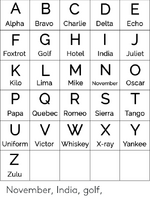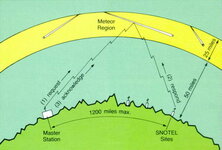- Messages
- 4,443
- Reactions
- 6,229
Basically what it boiled down to is even on a unsecured radio you could talk and verify friendlies on the other end by using the book . There would be days on that day you would have a password and when you approached a secure area you could use that password in a sentence and well not be shot . If speaking on the radio you would be asked to authenticate and depending on the day you would give the response to let them know you are on the right side !
















